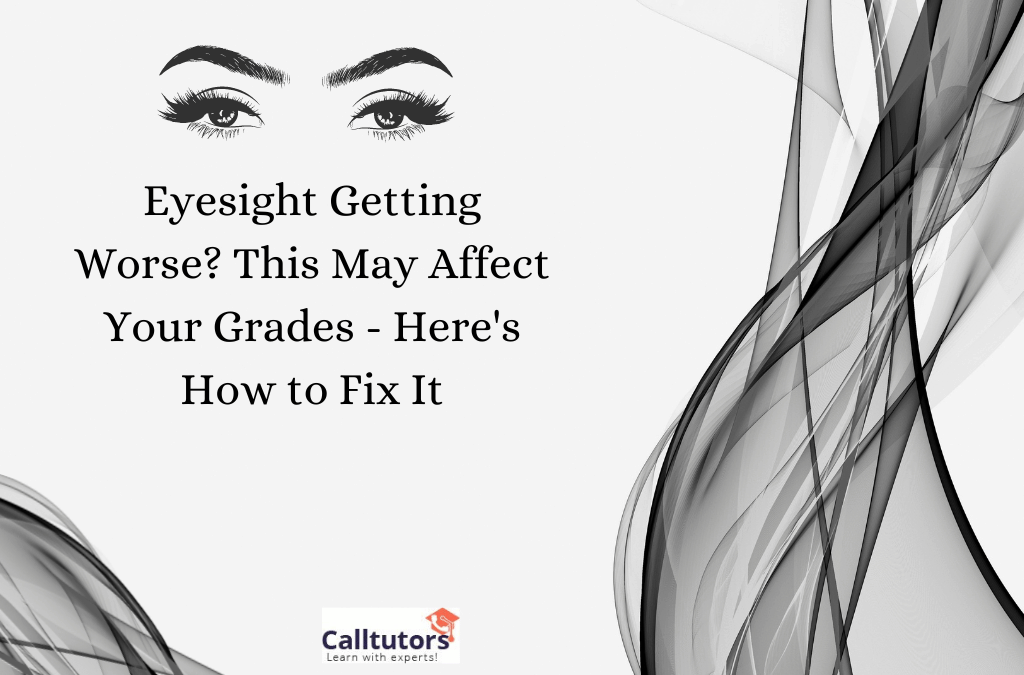Fun fact of the day: if you’re still in school, you’re at a higher risk of developing vision issues. Studies find that for every year of education you receive, your likelihood of developing myopia—or nearsightedness—increases. Think of your time indoors studying, reading, and writing things up close. And since we’re currently living in a digital age, you’re most likely spending much time looking at screens, too. All these things strain your eyes and speed up the progression of myopia.
But that’s not all. As your vision worsens, so can your academic performance. If you can’t see what’s written on the board during class, you may also not understand and participate in lessons. Poor vision may also take you longer to read or write. In more serious cases, you may misread words on test and exam papers, increasing your chances of getting wrong answers.
If you want to learn more effectively and keep your grades up, you may like to find out how to fix the vision issues you’re experiencing. Here are a few things you can try once you notice your eyesight getting worse:
Eyesight Getting Worse? Get regular eye exams
Table of Contents
The first and most important step you should take is to get tested by an optometrist. An eye exam will tell you how far away you are from 20/20 vision and why your eyesight may worsen. More importantly, it’ll tell you what you can do to fix it. Optometrists must conduct exams to give you a prescription in case you need to wear eyeglasses or contact lenses. Try to get tested once a year so your optometrist can track the progression of your eyesight—and if you’re asked to wear corrective aids, be sure to do so as soon as possible. That way, you don’t need to let poor vision stop you from performing well in class.
Look after your health
Better grades start with better health. Eating nutrient-dense over over-processed foods will fuel your brain, exercising can give you the energy you need to get through classes and study sessions, and sleeping 7-8 hours a night sharpens your memory, improves your attention span, and enhances your problem-solving skills. These steps can also improve your grades by improving your eye health. A balanced diet of lean meats and fish, whole grains, fruits, and veggies will keep your eyes moist, repair damage, and slow the progression of eye conditions like myopia. Regular exercise regulates your blood pressure and cholesterol levels to prevent your sight from worsening as you get older. Finally, sleep is crucial for strained eyes to relax after studying and flush out toxins, so avoid pulling all-nighters if possible.
Get some sun—but not too much
Researchers reveal that underexposure to sunlight and the outdoors worsens myopia—meaning getting more sun can slow it down by preventing your eyeballs from elongating and helping your eyes recover from looking closely at books and screens. That said, try not to spend all your time indoors studying or in class. However, the rule “too much of a good thing is still bad” applies here. Overexposure to the sun’s UV rays will increase your risk of developing vision loss-causing diseases, like macular degeneration and eye cancer, once you’re an adult. That makes it crucial to wear sunglasses when you want to spend time outdoors. Be sure to buy a pair with 100% UV protection for the best effect. Reliable brands like Ray-Ban and Oakley provide this and stylish designs you can pick through virtual try-ons, so you can look extremely cool while keeping your eyes safe and healthy.
Monitor your device use
Since digital devices are now extremely necessary for schoolwork, you’re probably looking at screens for multiple hours a day. However, our eyes weren’t designed for near work. If you’re not monitoring your device use, you’ll strain your eyes and accelerate myopia development. The solution is to give your eyes a chance to recover. Take walking breaks every hour or, if you’re pressed for time, follow the 20-20-20 rule: look 20 feet away from you for 20 seconds every 20 minutes. If you need to sit down at a computer and crack away at an assignment for a few hours, protect your eyes as much as possible instead. Wearing blue light glasses can shield you from excess blue light coming from screens that can strain your eyes and damage them over time. As an added bonus, reduced blue light exposure can help you sleep better at night.
If you’re worried about worsened eyesight affecting your academic performance, try these tips once you notice any changes in your vision. Check us out here at CallTutors for even more study help!


